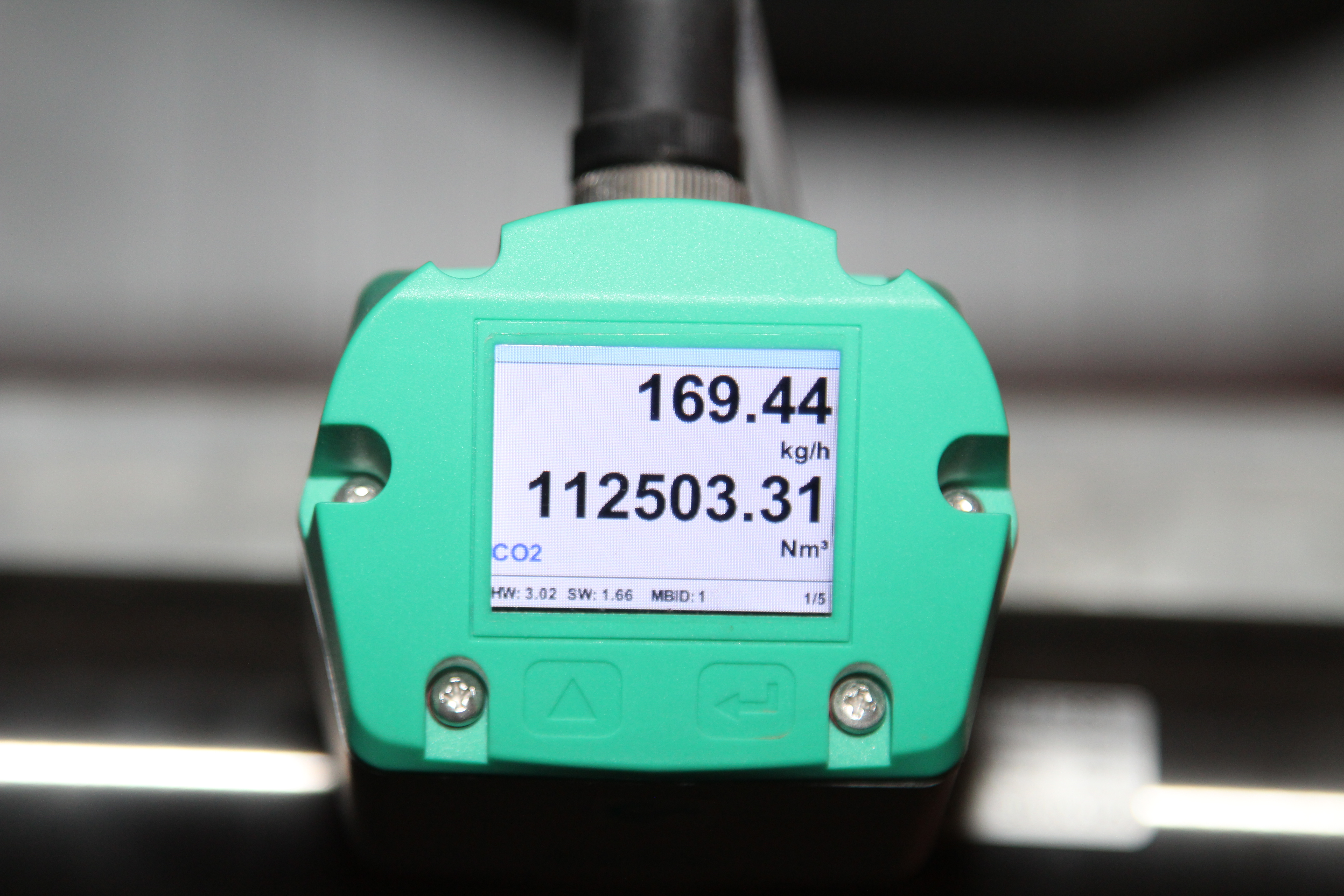Marjoland improves CO2 dosing with CRUM supply measurement per department
"Now we really see what is consumed in each greenhouse"
Rose nursery Marjoland structurally invests in knowledge development and instruments that help to produce more, better, more efficiently and cleaner. In 2023, the company commissioned seven CRUM CO2 meters from Van Dijk heating, which allow custom dosing in each cultivation department. "That's really desirable when you have different greenhouses with different consumption characteristics," says cultivation manager Erwin van Adrichem. "Since we measure the supply in kg CO2 per department, the control is more accurate. Now we really see what is consumed in each greenhouse."
Most greenhouse farms distribute their CO2 through one main connection (CO2 set), possibly in combination with a control valve per department. Such a valve is controlled during dosing based on the measured CO2 concentration in the cultivation space, expressed in ppm. Until last year, this also applied to nursery Marjoland in Waddinxveen, The Netherlands.
Large variation
"Such a distribution system should work well in theory, but still has its limitations," says general manager Daniël van den Nouweland. "Apart from the fact that CO2 sensors in greenhouses are not always very accurate, there are several factors that can make accurate dosing difficult. For example, especially on large farms with long CO2 distribution pipes, you have to deal with a decay in pressure. In addition, there are sometimes large differences between the greenhouses and the greenhouse layout and last but not least, there are plants of varying varieties and ages. In short, we knew very well how many kg of CO2 went into our greenhouses, but only approximately how it was distributed among the departments. The measured values varied considerably."
Cost price gets higher
Inaccuracy need not be a problem as long as CO2 is cheap and widely available, so you can dose liberally. However, that is not what the future holds. The transition to fossil-free energy and the pricing of CO2 emissions will make horticultural companies dependent on CO2 sources other than natural gas and force them to dose more efficiently.
"We are sorting for that now," continues cultivation specialist Erwin van Adrichem. "In the second half of 2023, we installed seven CRUM CO2 meters from Van Dijk heating. These sit right in front of the CO2 sets; one in front of the main connection and two on either side of each of our three greenhouses. This allows us to see exactly how many kg of CO2 is going into the departments. In combination with the concentration measurements in the departments and an update of our climate control software package, we can now dose much more accurately."
Meaningful investment
"Actually, we are now doing what we should have always been doing," Van den Nouweland summarizes. "I can tell from the feedback from our cultivation people that the CRUM’s are a worthwhile investment. You can see that in the data, by the way. The measured values are more close to the target values. A software upgrade of the climate computer is not quite complete yet, and that too will do its part. We don't necessarily need to consume less CO2, as long as it gets to the right places in the right quantities and at the right times. Thanks to the CRUM CO2 meters from Van Dijk heating and the new software from Hoogendoorn Growth Management, we have taken another step forward. If you compare it with all the other investments in the context of energy savings and sustainability, it is only a small step, but you have to take it once."

CRUM-meter Marjoland